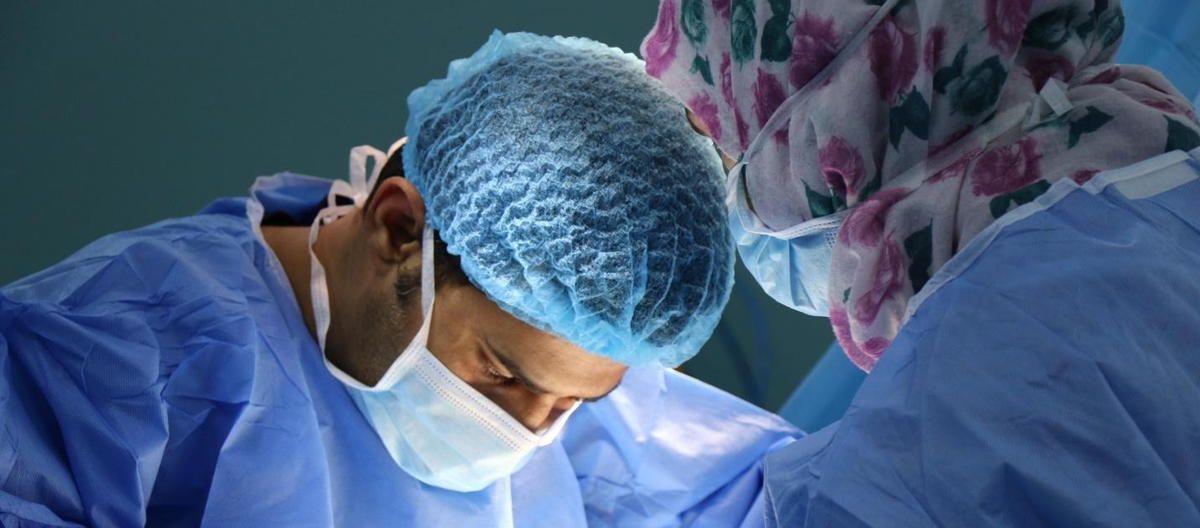Do this BEFORE you get bariatric surgery, a gastric bypass, or a gastric sleeve!
Do this BEFORE you get bariatric surgery, a gastric bypass, or a gastric sleeve!
Are you so worried about your weight that you are considering a gastric bypass procedure?
Has your doctor warned you that if you do not start controlling your weight you will have significant health problems that could be life-threatening?
Are you concerned about the side effects of these permanent procedures, but do not know how to control your eating habits in a better way without surgery?
Obesity is a common issue that is faced by people across the planet.
In a study conducted in 2016, more than 1.9 billion adults, 18 and older, were found to be overweight.
While exercise and diet alone can be powerful tools in the battle against obesity, some people find it hard to benefit as they do not know how to use these techniques to their advantage correctly.
Often in such cases, a lack of knowledge and guidance can make it seem as if a surgical procedure such as a gastric sleeve is the only effective solution that exists.
When you feel that exercise and diet have failed you in stopping your emotional eating, bariatric surgery can seem like a last resort option that offers a quick and permanent solution.
Bariatric surgery refers to a set of surgical procedures that aid in weight loss by making changes to your digestive system. Some of these procedures limit how much you can eat, while others reduce your ability to absorb nutrients.
The most common type of Bariatric surgery includes gastric bypass surgery, in which a small pouch is created in the top portion of the stomach.
This pouch divides a portion of the stomach from the rest of the stomach’s area.
Then the small intestine is similarly divided and connected to the newly created small pouch.
This procedure limits the food your stomach can hold as well as how many calories it can absorb.
Sleeve gastrectomy is another form of bariatric surgery in which almost 80% of the stomach is removed.
Bariatric surgeries are performed in severely overweight patients with life-threatening health problems such as heart disease, sleep apnea, non-alcoholic fatty liver disease, for example.
Bariatric surgery can help you eliminate excess weight almost instantly and deter weight gain in the future. In most cases, it is only preferred to help save lives.
It is essential to understand that such surgeries are not for everyone, and they come with physical and emotional complications of their own.
Many people — despite not suffering from life-threatening conditions — opt for Bariatric surgery.
If you are thinking about getting a bariatric procedure for yourself, you might already know the benefits, but are you aware of the complications that can arise after the surgery?
And most importantly, are you aware of other non-surgical procedures that could help you manage your weight and body image problems in a relatively easy and non-risky way?
When people choose to get their stomach operated on, they often feel so desperate (and are often scared to death by their doctors) they can put a blind eye to the risks that could follow them in the future.
Before getting any kind of surgery, you must weigh both the pros and cons and only after careful assessment, make the final choice.
Bariatric surgery is a complex procedure that permanently affects your vital organs and can potentially result in higher complication rates.
It also requires comprehensive close monitoring and limiting yourself to the lifelong use of medications and an extremely limited selection of foods.
The physical risks associated with a gastric bypass resemble that of any abdominal surgery. These can include bowel obstruction, gallstones, hernias, malnutrition, ulcers, vomiting, stomach perforation, and low blood sugar.

Excessive skin creation is another lesser-known issue, and you might have to go through corrective surgery for that condition, which is expensive and can also have negative complications.
The surgery may also lead to “dumping syndrome” that can cause regular excessive diarrhea, nausea, or vomiting.
When they experience these side effects patients usually must undergo another surgical procedure to get their complications resolved!
Other than physical complexities, there can also be severe psychological side effects.
The extreme shifts in diet and lifestyle after the surgery can be a challenging life-long adjustment. Your body may respond differently to alcohol, soda, and certain foods after surgery which can put you at a risk when engaging in social hangouts or other leisure activities involving a wide variety of foods.
Weight loss surgery can provide you with an initial uplift in mood and increased satisfaction. However, studies suggest, it may result in a higher prevalence of co-morbidities, including mood disorders, worsening of eating disorders, low self-esteem, anxiety, increased alcohol use, and personality disorders.
Therefore, you should get specialized counseling from mental health professionals for your eating issues and keep permanent surgery as a last resort.
Proper counseling can also improve self-esteem and stop ongoing intrusive thoughts about food, body image, and dieting that interfere with the quality of life.
Individualized mental health and nutrition counseling can help you educate yourself about your condition and try practical approaches you were previously unaware of.
Intuitive eating is one such method that helps you maintain your natural weight and stop your body image issues without involving surgery.
Intuitive eating does not involve any forms of dieting or food restrictions. Unlike dieting, you do not have to go through prolonged fasting or relying on specific foods to obtain your results.
Instead, intuitive eating is a mindset that makes you an expert on how your body works and how you can form a lifelong healthy attitude towards food and body image.
Intuitive eating helps your body break the diet cycle and set it into its natural weight range instead of focusing on just shrinking your body.
Like genetics and hair color, every person has a unique body shape, and the ideal weight varies from person to person.
You do not have to follow the same body standard everyone else follows because your body has its own ideal weight and shape.
It means that your ideal weight can be less than what you have now, or even more. The end goal is not maintaining a healthy weight. Instead, it is keeping a healthy body where healthy behaviors should be your top priority.
The main principle of intuitive eating involves eating only when your body requires food and stopping as soon as you are full. As it does not include any restrictions, this approach towards eating can be easily followed over the long term without sacrificing food variety or lifestyle.
Body image issues usually arise when you start to misuse food for emotional reasons.
In emotional eating, you use food as a powerful way to soothe feelings of sadness, loneliness, boredom, and even excitement and joy. This form of eating causes guilt, self-hatred, and eventually developing unhealthy relationships with food and body image.
Intuitive eating means you learn to eat in response to physiological hunger instead of eating for emotional reasons. It means you honor your body’s natural hunger cues, do not pose any unnecessary restrictions on it, and feed it adequately, only in response to physical hunger.
Intuitive eating prevents excessive hunger and our primal drive to overeat. Instead of fighting against your body’s cravings, you make peace with your food and give your body permission to eat what it wants.

This way, you maintain a healthy weight without dieting or engaging in dangerous medical procedures and focus on developing and maintaining healthy behaviors.
Your dissatisfaction with your body involves more than just your weight. It could be a combination of factors involving underlying mental health conditions and distorted mindsets that lead to self-esteem issues.
With the help of proper counseling and adopting an intuitive approach, much of your issues can be solved in less risky and more healthy ways, making sure you achieve your goals without getting surgery.
So, before choosing surgery as your solution, try getting individualized counseling to obtain less risky, healthy, and easy-to-follow lifelong approaches to improve your self-esteem and take control over your body image problems.
By the way, we often get calls to perform mental health “evaluations” to deem a person mentally “sane” so they can get the go-ahead to receive bypass procedures.
Guess what? We refuse to perform these evaluations as policy. Why? Because most people are sane! The problem is that they have not worked with intuitive eating specialists who can teach them how to get out of dangerous weight range without dieting or surgery.
We feel that our dieting culture is insane. If you would like to work with our intuitive eating specialists to explore a much less dangerous and expensive way to have a healthy relationship with food, call us or fill out a free 15-minute consult form today.










